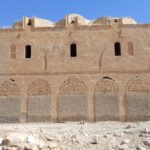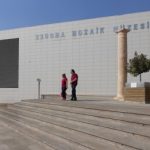I’m in Burdur otogar waiting for the bus to Bucak when a woman sits down beside me who, at a sidelong glance, I’m sure must come from Somalia. She’s wearing a ragbag mix of clothes and far too many of them, in my opinion, for the sticky hot weather. Her head is wrapped in the type of cheap scarf you see for sale on souvenir stalls but that will almost certainly have been imported from China. Her feet are clad in plastic sandals over socks. With her is a little girl with a clear, bright face, her hair twisted into asymmetrical plaits.
The woman I take to be her mother instructs the little girl to give me a kiss. I use it as an excuse to start a conversation.
“Are you from Somalia?” I venture.
“Somalia. Yes.” Her Turkish is breathy and faltering
“From Mogadishu?”
“Kismayo. I came from Kismayo. Through Kenya to here.”
“What’s her name?” I ask of the little girl.
“Shua.”
Shua beams up at me as I rummage in my bag and produce a mint.
“How old is she?” I ask.
“Three.”
“And how long have you been here?”
“Three years.” There is about her face a beaten look, a lack of curiosity in her eyes I take to mean that life has worn her down beyond caring about anything except what she must do next to keep going.
Then spontaneously she volunteers that she is Shua’s grandmother. The little girl’s mother is in Konya. She’s five months pregnant, grandma says, and pulls a face that speaks volumes for the hard lot of a refugee.
Conversation stumbles on. “We’re with UNHCR,” she manages to get out. “After three years we go America, Canada, Finland.”
I must say that I’m rather taken aback to find them here. Under current law the Turkish government is under no obligation to take any refugees for permanent settlement unless they’re fleeing from Europe, and I know that it prefers to disperse people around the country while UNHCR tries to find them new homes. There are plenty of refugees in İstanbul these days, and there are large İranian refugee communities in Kayseri and Nevşehir. Still, this is way off the beaten track. How, I wonder, would anyone survive here without a support network?
Then Shua skips off in search of whatever new excitements the otogar might hold. Grandma hauls herself up and lumbers after her. I might as well not have been there for all she remembers to say goodbye.
Shortly afterwards my bus pulls in. I hand the rest of the mints to Shua whose face lights up immediately. She’s so full of life, vitality and innocent hope, that little girl. Yet how can things get anything but harder if her mother has another baby on the way?
Please let UNHCR do well by her, I find myself praying. It’s surely the least we owe that trusting little face.
Written: 15 October 2013

